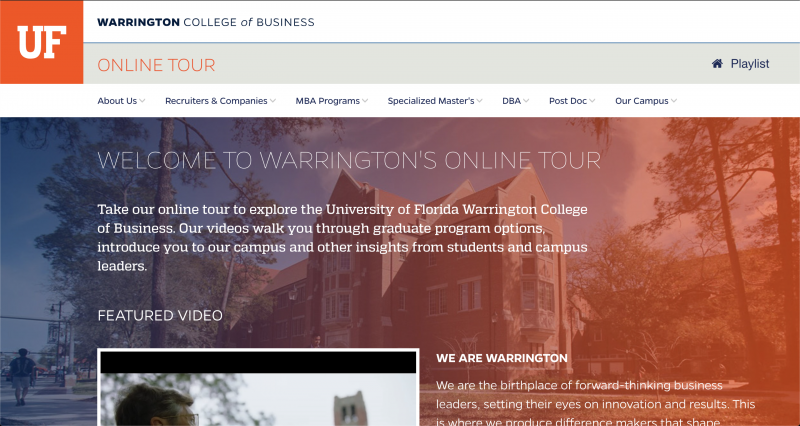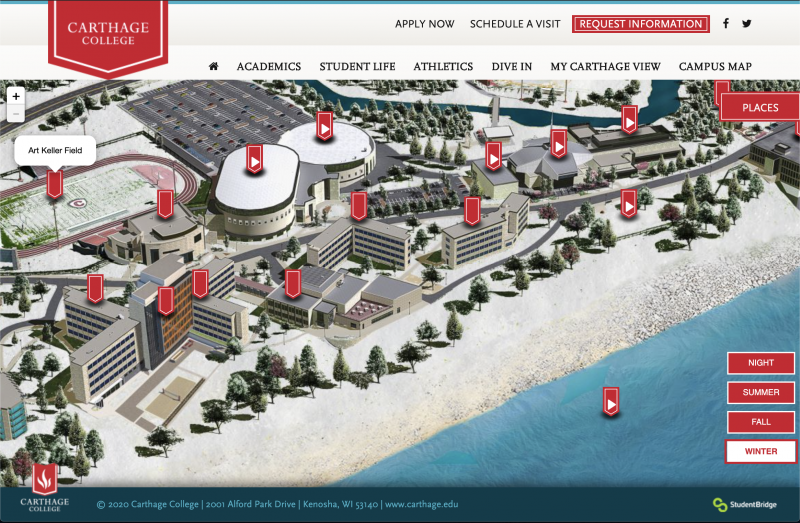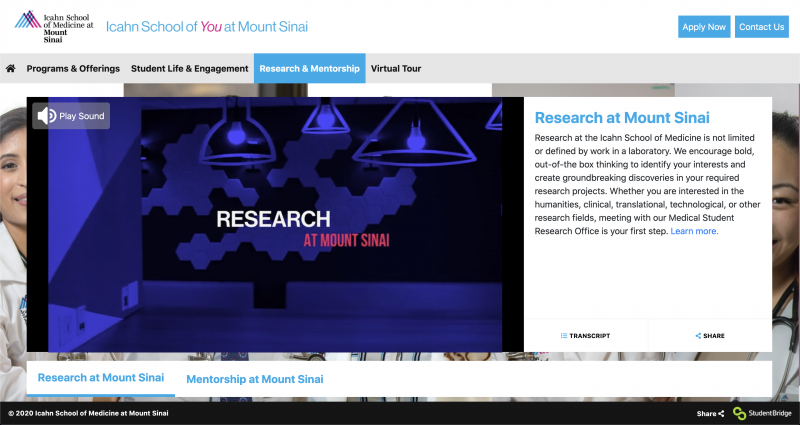The 2019-2020 recruitment cycle is upon us as we jump into the fall semester, and high school students all across the world begin their search for the perfect college.
There are many ways to reach prospective students, but more likely than not, they will scour the internet in search of information that is pertinent to their wants and needs.
This presents you with two problems:
- How do you identify these prospective students, or more so, how do you get these students to identify themselves?
- How do you ensure that they are consuming the RIGHT content about your institution?
How do you tackle these issues and get these students to a place where they want to extend their research on your institution into a physical campus visit? How do you get them to request more information and apply?
Informational vs Emotional Marketing
When students are first deciding which colleges to research, they start their search in more of an information-seeking mindset. They are worried about the qualifying factors to get accepted to your institution. They are asking questions like
- What GPA and test scores do I need?
- How much is tuition?
- Is this too far or too close to home?
- When are the application deadlines?
- Are there scholarships or grants I can apply for?
- How many students get accepted here each year?
Once these questions have been answered and students have narrowed down their choices based on this information, your best bet at converting prospects into applicants is to appeal to the emotional aspect of this decision. Now they are asking questions like
- What kind of academic or personal support will this college provide me?
- Are there student organizations that may interest me?
- What is Greek culture like or can I join academic or professional fraternities?
- Is there a freshman experience I can take part in?
- Will I be able to make friends?
- How can I find the right mentors?
Students are looking for the right fit and feel to launch their college careers. With first-year retention rates showing about a 30% drop rate each year, there is a likely chance that the college and the student were not the right match.
By using emotional marketing in authentic ways, you can help increase the probability that your program is providing the right content and messaging to the right students to ensure the proper fit and feel. Here are a few tactics to guide your strategies.
Bring Your Campus to Them
We know that a physical visit to campus is a strong indicator of intention to either apply to or attend your university. But we also know the high costs of college visits from a high schooler1s perspective.
You combat this by bringing your campus to them.
Focus on bringing your campus to life, and create the opportunity for students to virtually engage with your campus through personalized rich media content. This type of engagement creates and fosters an emotional connection with these prospective students. It gives them an opportunity to imagine their potential lives as a student on your campus and in your programs.
There are a few major tools that can help you engage, impress, and convert students:
- Video viewbooks or virtual tours
- Interactive campus maps
- Student testimonials
Video Viewbooks or Virtual Tours
Virtual tours are getting better and better in terms of technology. We know 95% of students conduct a majority of their school search online, so a virtual tour is one of those first steps to getting a student acquainted with your campus.
The reason we like to emphasize the importance of Video Viewbooks is because of the way consumers want to digest information.

72% of prospects would rather watch a video about your school to learn more instead of reading text or viewing static media. This often leads them down a video route that gives deeper insight into your physical campus, your programs, your culture, and your results.
In cases like a Video Viewbook, you give students constant and visible access to calls to action, whether it be to request more info, schedule a visit, or apply. This helps you to never lose a conversion based on convenience.
Interactive Campus Maps
Whether they are digitally rendered like StudentBridge1s maps, or overlaid on Google maps, the purpose of an interactive campus map is to help students make emotional connections to the campus and encourage a live visit.

Interactive campus maps are also a great tool for introducing your campus to prospective students. Fit and feel somewhat work their way into these forums, but they are not truly effective until you1ve added personalized rich media.
Student Testimonials
We see time and time again psychologically that humans are heavily reliant on testimonials or reviews. When is the last time you purchased something online without reading the reviews? The same can be said for one of the biggest, most expensive purchases of a student1s life.

76% of students say that an experience led by a student guide highly impacted their application or enrollment decision. But the stipulation is that these students have to first have access to these testimonials. If they aren1t on campus, you have to find other ways to communicate this information to them.
The Results?
All of these measures guide students towards identifying themselves for you. Get these stealth online visitors so engaged with your content that they reach out directly in search of more info.
Each college and university has different challenges to overcome in their recruitment strategies, but there is no denying the intense importance of personalized rich media in every recruitment and retention strategy.
StudentBridge has the solutions to help you create and promote personalized rich media content across all of your channels. If you1d like to learn more, contact us and we1ll get the discussion started today!

